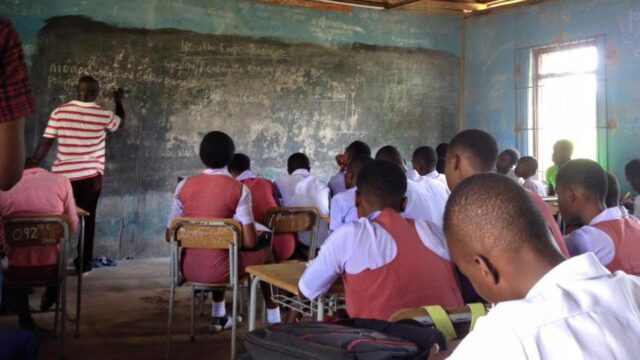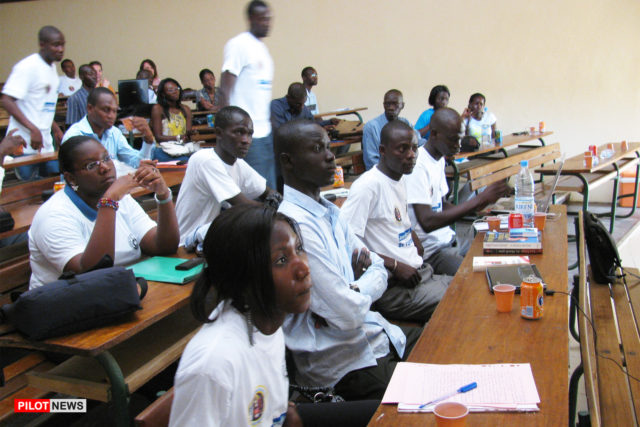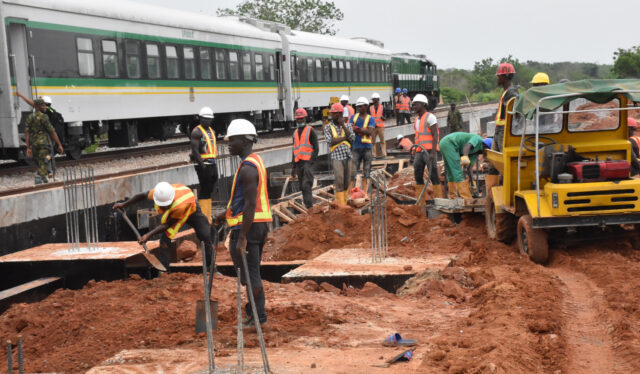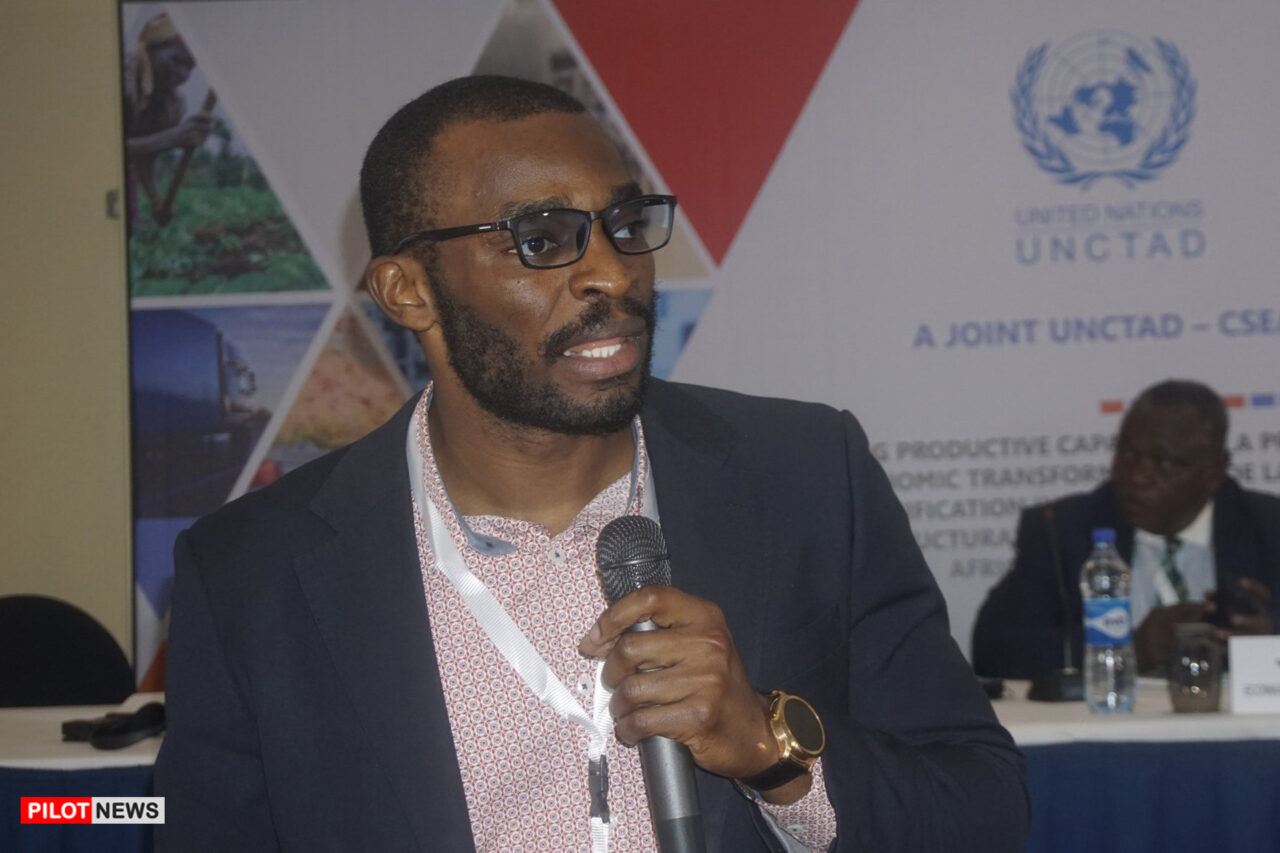Five months into the pandemic, Nigeria is learning the hard way that some of its unresolved problems would make recovery from COVID-19 slow and difficult.
Many sectors in Nigeria have grappled with poor infrastructure for many years. A problem that has rendered many of them ineffective.
Education and health are two of the most wrenched sectors in Nigeria in the wake of COVID-19. Although many had thought that the virus would be confined to Asia and Europe, state governments scrambled to build isolation centres and increase testing when the index case was confirmed and it was clear that the problem could not be wished away.
Months into the country’s battle with COVID-19, pressure on health institutions increased as the virus spread from one state to another. Agitations over welfare, insufficient manpower, and poor facilities by labour unions in the health sector, threatened to ground frontline defence against the virus.

In March, the Federal government ordered the shutdown of all schools over fear of the virus spreading. Five months after, it is reluctant to re-open schools because current infrastructure in many schools cannot support measures, including physical distancing which would prevent the spread of the disease.
Before COVID-19, common sights in many government-owned schools were crowded classrooms, classrooms with insufficient chairs and desks, and decrepit buildings. Although over 100 million Nigerians are connected to the internet, online classes are not feasible options for poor students. For many, poor electricity supply is a major obstacle to accessing classes delivered through mass media.
Dozie Okoye, a Professor of Economics at the Dalhousie University in Canada and a visiting fellow at the Centre for the Study of the Economies of Africa, is concerned about the long term impact COVID-19 may have on human capital development and that Nigeria is not effectively doing what it takes – testing, tracing, isolation – to get the virus under control.
“It is a very precarious situation. Infrastructural deficits are made worse by chronic underinvestment in manpower (teachers, doctors, nurses, and public health workers) and data collection,” Professor Okoye told The West African Pilot News. “These neglected sectors stood no chance prior to COVID-19 and definitely cannot be expected to do much.”
A long history of neglect
Education and health, two sectors that have direct impact on Nigerians, have been consistently neglected.
Bastardised by many military governments and mismanaged by democratically elected officials, many Nigerians believe that the value of the education sector has sunk.

Budgetary allocation is one of the ways to assess how much priority is given to education. In eleven years (2009 – 2019), the Federal government’s yearly allocation to education never exceeded 10 per cent of the budget. The situation is worst in many states across the country.
The education sector has little chance of developing if most of its meagre allocation go to recurrent expenditure, including payment of salaries. Plagued by ghost workers – employees who exist only on payrolls – and diversion of funds meant for capital projects to private pockets, the sector is starved of funds that are essential for its development.
Underequipped and understaffed public health institutions are the only affordable options available for millions of Nigerians. Many people, without health insurance, pay fortunes at private healthcare facilities in order to avoid poor services at government hospitals.
Health sector development is a common campaign promise in an election year. When elected, many officials brush aside the promise and spend tax payers’ monies on seeking care in well-equipped private hospitals in the country or travel abroad for treatments.
For years, Nigeria fell short of the Abuja Declaration agreement in 2001, when African countries agreed to allocate 15 per cent of their annual budget to health. Like education, allocations to the health sector have persistently been below 10 per cent and the government spends even less on capital projects.
“The country’s public health and education sectors are simply not built, COVID-19 pressures aside. The dysfunctions in the system are longstanding, and we have seen citizens increasingly seek out private options in both sectors over the years,” Professor Okoye said.
Why is it difficult to build infrastructure?
The Infrastructure Concession Regulatory Commission (ICRC), in 2017, said that Nigeria losses N2.03 trillion every year to poor infrastructure. In 2019, the Minister of Finance, Budget, and National Planning, Zainab Ahmed, said that Nigeria needed to invest $3 trillion annually for 30 years to bridge infrastructure gap, but “Nigeria no doubt lacks the fiscal space to self-finance the required infrastructure investment.”

Government officials often say that education and health get little allocations for capital projects because there are other competing demands. Nigerians, however, say that the government is wasteful and governance is unnecessarily expensive.
Professor Okoye said that building infrastructure in Nigeria contends with issues such as corruption, weak political will, and poor articulation of infrastructure goals.
“The political will to forego short-term gains for investments with a longer-term horizon is missing,” he said. “These goals when properly articulated and communicated, can sustain the political will for infrastructure projects.”
A limping economy
Oil, a major foreign exchange earner for Nigeria, took a downward spin in the wake of COVID-19. Few months into the pandemic, oil price crashed as low as $27 per barrel, devastating Nigeria’s oil produced at $23 per barrel.
Hit by a double whammy of prolonged closure of business and industrial hubs in several countries and the shutdown of global air transport, supply overshot and demand for oil contracted, tumbling oil price and rocking Nigeria’s economy. Confronted with decline in oil revenue and worsening scarcity of foreign currency which weakened the Naira, the Federal government and many state governments were forced to slash their budgets for the year 2020.
Observers say that the devastating impact of oil price crash would have been minimal if Nigeria had not been overly dependent on oil and if the non-oil sector had been upgraded from GDP drivers to substantial foreign exchange-earners like oil.
“The economy has to be diversified and this has nothing to do with oil prices. Diversification is the only ‘free lunch’ in investing, as they say in finance, because it allows you to increase returns and lower risk,” Professor Okoye said. “Diversification ought to have happened in the days of high oil prices.”
Having depleted funds in its excess crude account by 98 per cent from $2.2 billion in 2015 to $72 million in five years, Nigeria may drown itself in more debts to survive economic uncertainties. Nigeria’s deficient infrastructure and self-injuring economic policies are hard lessons to learn on how a country should not be managed.
“I believe the government should not deviate significantly from its longer-term goals around diversification and infrastructure investments.
“COVID-19 is a short-term shock, in the grand scheme of things, and policymakers ought to remain focused on long term goals that will transform the economy,” Professor Okoye affirmed.
- PHOTOS: After 48 Days in Hospital, Boy Labelled Witch and Abandoned is Discharged - August 8, 2021
- Travellers Complain Over Fly Infested Aminu Kano Airport - August 6, 2021
- Ondo 2020: Mimiko Criticises Akeredolu’s Performance - September 28, 2020


